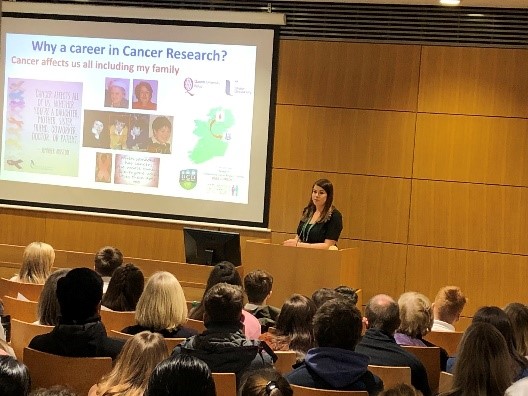Colorectal cancer (CRC) is the third most common diagnosed cancer worldwide and the fourth most common cause of cancer death. It is a major cancer type expected to be particularly related to disturbances in the gut microbiome constituents, but there is a need to establish information on how gut microbes may influence disease course and prognosis. While Helicobacter pylori (H. pylori) is the major cause of gastric cancer, it has also been suggested to be involved in CRC development. However, it remains unclear if this microbe is involved in the initiation of CRC. In the present study, we assessed whether antibody responses to H. pylori are associated with CRC risk in pre-diagnostic serum samples taken from 485 CRC cases and 485 matched controls in the detailed European Prospective Investigation into Nutrition and Cancer (EPIC) study lead by Dr. David Hughes. We applied a multiplex serology assay to simultaneously measure antibody responses to 13 H. pylori antigens. In this large, prospective multi-center European study, we observed that antibody responses to H. pylori proteins, specifically HcpC and VacA, were associated with increased risk of developing CRC. Biological mechanisms for a potential causal role of H. pylori in colorectal carcinogenesis need to be elucidated, and subsequently whether H. pylori eradication may decrease CRC incidence.
Butt J, Jenab M, Pawlita M, TjønnelandA, Kyrø C, Boutron-Ruault MC, Carbonnel F, Dong C, Kaaks R, Kühn T, Boeing H, SchulzeM, Trichopoulou A, Karakatsani A, la Vecchia C, Palli D, Agnoli C, Tumino R, Sacerdote C, Panico S, Bueno-de-Mesquita B, Vermeulen RCH, Gram IT, Weiderpass E BenjaminsenBorch K, Ramón Quirós J, Agudo A, Rodríguez-Barranco M, Santiuste C, Ardanaz E,van Guelpen B, Harlid S, Imaz L, Perez-Cornago A Gunter MJ, Zouiouich S, Park JY,Riboli E, Cross AJ, Heath AK, Waterboer T, Hughes DJ. Antibody responses to Helicobacter pylori and risk of developing colorectal cancer in a European cohort. CancerEpidemiol Biomark Prev 2020, Apr 24. pii: cebp.1545.2019. doi:10.1158/1055-9965.EPI-19-1545. [Epub ahead of print] PMID: 32332031.
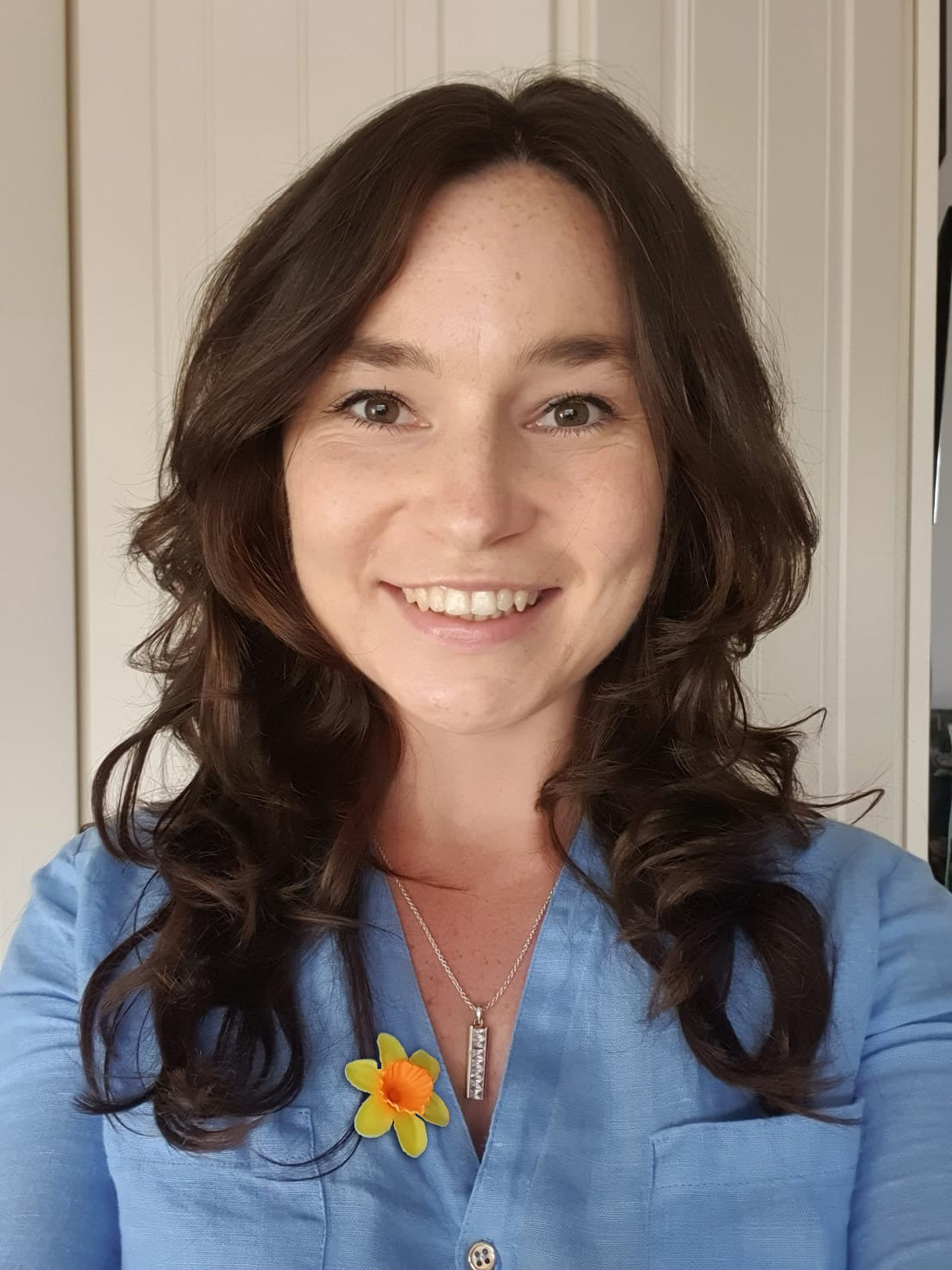 The CBT laboratory is delighted to congratulate Adele on her success in obtaining a PhD scholarship from the Irish Cancer Society to undertake translational research in ovarian cancer with Dr. Antoinette Perry.
The CBT laboratory is delighted to congratulate Adele on her success in obtaining a PhD scholarship from the Irish Cancer Society to undertake translational research in ovarian cancer with Dr. Antoinette Perry.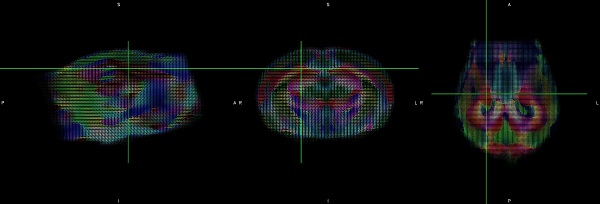
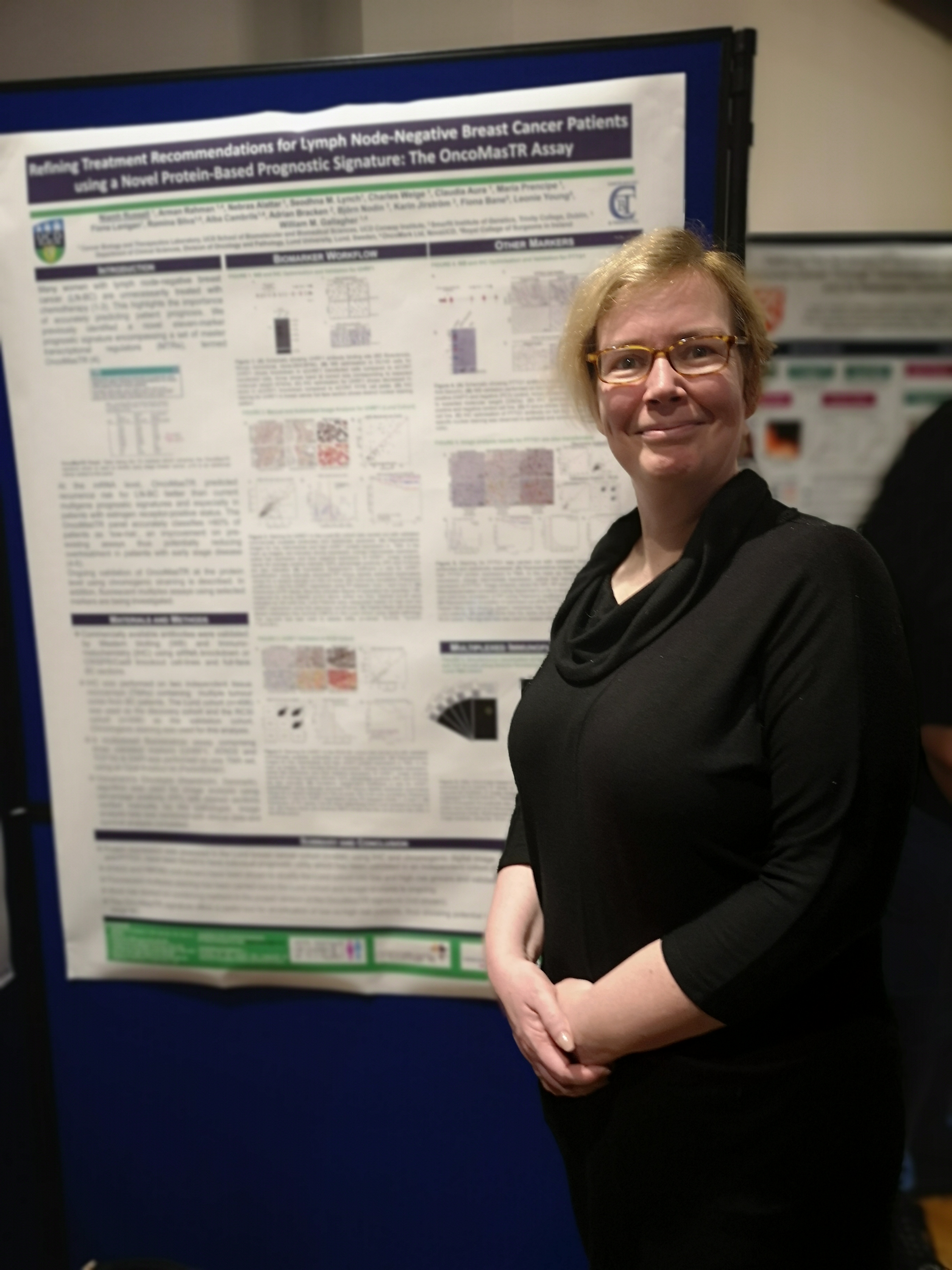
 Romina Silva was awarded the inaugural Prof. Patrick Johnston IACR Award for excellence in cancer research outreach in the annual IACR conference (2019). This award was given based on her lay talk entitled “Understanding therapeutic resistance – following cancer’s breadcrumb trail”.
Romina Silva was awarded the inaugural Prof. Patrick Johnston IACR Award for excellence in cancer research outreach in the annual IACR conference (2019). This award was given based on her lay talk entitled “Understanding therapeutic resistance – following cancer’s breadcrumb trail”.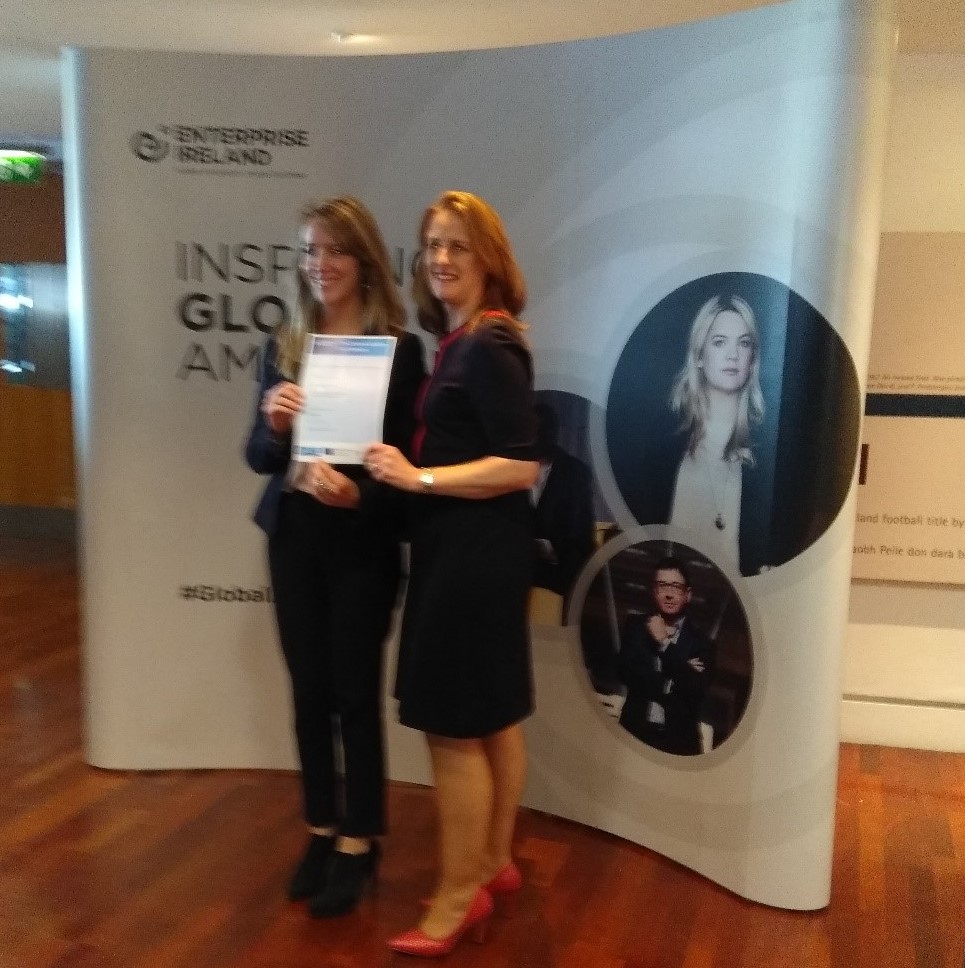 14th February 2019: Dr Antoinette Perry receiving official award of Commercialisation Fund from Deirdre Glenn, Director, Lifesciences & Food Commercialisation at Enterprise Ireland for project entitled, “epiCaPture: a urine test to detect aggressive prostate cancer”.
14th February 2019: Dr Antoinette Perry receiving official award of Commercialisation Fund from Deirdre Glenn, Director, Lifesciences & Food Commercialisation at Enterprise Ireland for project entitled, “epiCaPture: a urine test to detect aggressive prostate cancer”.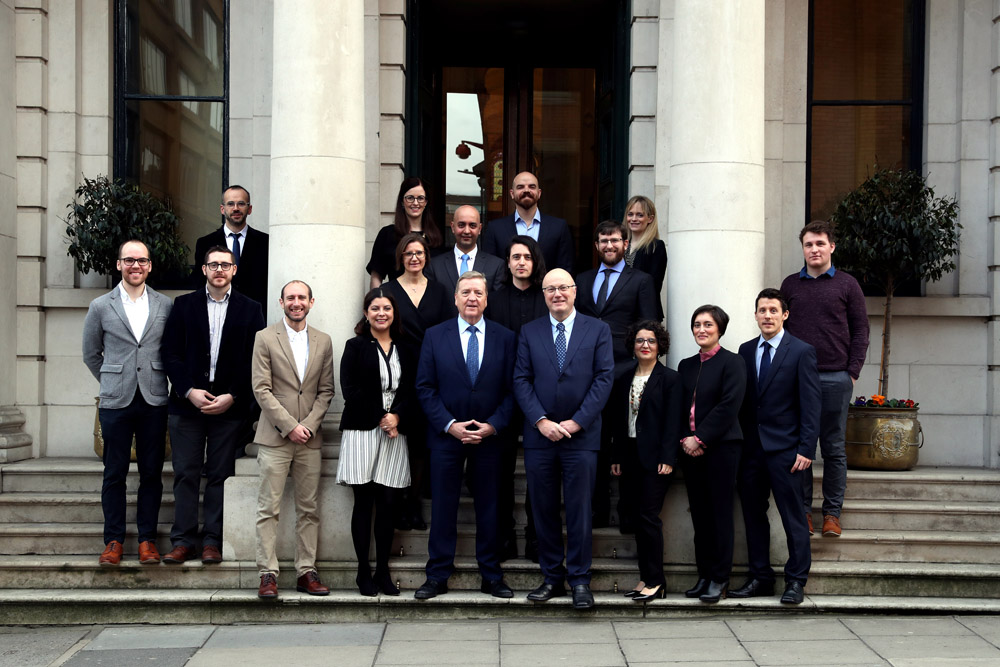
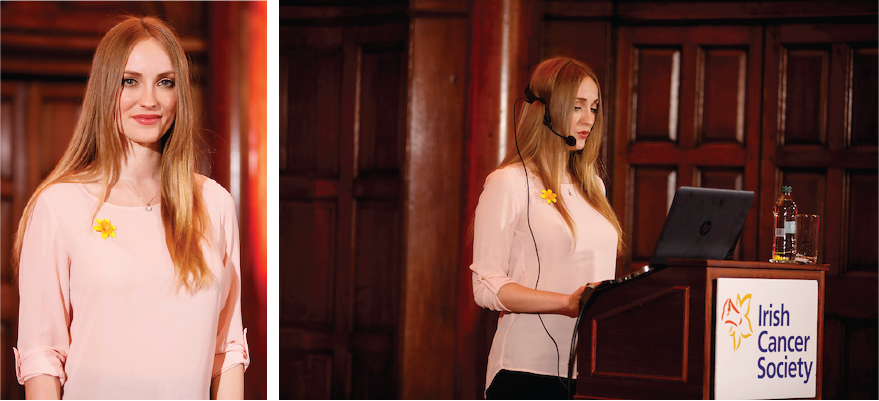 Alex was one of three Irish Cancer Society-funded scholars who were shortlisted for an Irish Cancer Society Research Award, where she presented a lay version of her research to a mixed audience judged by a patient panel. To-date, Alex has computationally identified changes in activity of thousands of enhancer regulatory elements in prostate cancer. Her talk entitled “Understanding Aggressive Prostate Cancer”, explained her key findings in simple terms by applying an analogy that searching for these tiny DNA sequences in the human genome is equivalent to searching for a small set of words in 200 phone books.
Alex was one of three Irish Cancer Society-funded scholars who were shortlisted for an Irish Cancer Society Research Award, where she presented a lay version of her research to a mixed audience judged by a patient panel. To-date, Alex has computationally identified changes in activity of thousands of enhancer regulatory elements in prostate cancer. Her talk entitled “Understanding Aggressive Prostate Cancer”, explained her key findings in simple terms by applying an analogy that searching for these tiny DNA sequences in the human genome is equivalent to searching for a small set of words in 200 phone books.
